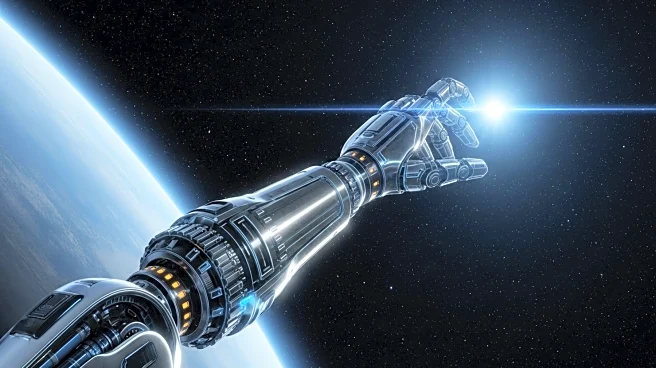What's Happening?
Icarus Robotics has secured $6.1 million in seed funding to develop robots that supplement labor in space. The New York-based startup aims to address logistical challenges and labor shortages by deploying AI-driven robots to perform tasks on commercial space stations. The robots are designed to handle routine operations, freeing astronauts to focus on scientific research. Icarus plans to partner with Voyager Technologies to bring its robots to the ISS in early 2027, with a focus on teleoperation and data collection to build autonomous models.
Why It's Important?
The initiative by Icarus Robotics highlights the potential for automation to transform space operations. By leveraging AI and robotics, the company seeks to enhance efficiency and reduce costs associated with astronaut labor. This approach could lead to more sustainable and productive space missions, benefiting both commercial and scientific endeavors. The funding reflects growing interest in space robotics as a solution to the challenges of operating in the unique environment of space.
What's Next?
Icarus Robotics plans to conduct its first zero-gravity test flight and continue developing its AI models for space operations. The company aims to deploy its robots on multiple commercial space stations, with future iterations capable of handling tasks in the vacuum of space and on the surfaces of the Moon and Mars. As the ISS approaches decommissioning, Icarus aims to position its robots as essential components of the next generation of space infrastructure.
Beyond the Headlines
The integration of AI and robotics in space raises questions about the balance between human and machine roles in exploration. Ensuring that robots complement rather than replace human capabilities is crucial for maintaining the integrity and safety of space missions. The development of space robots also prompts discussions on the ethical implications of automation and the need for transparent and accountable AI systems.









